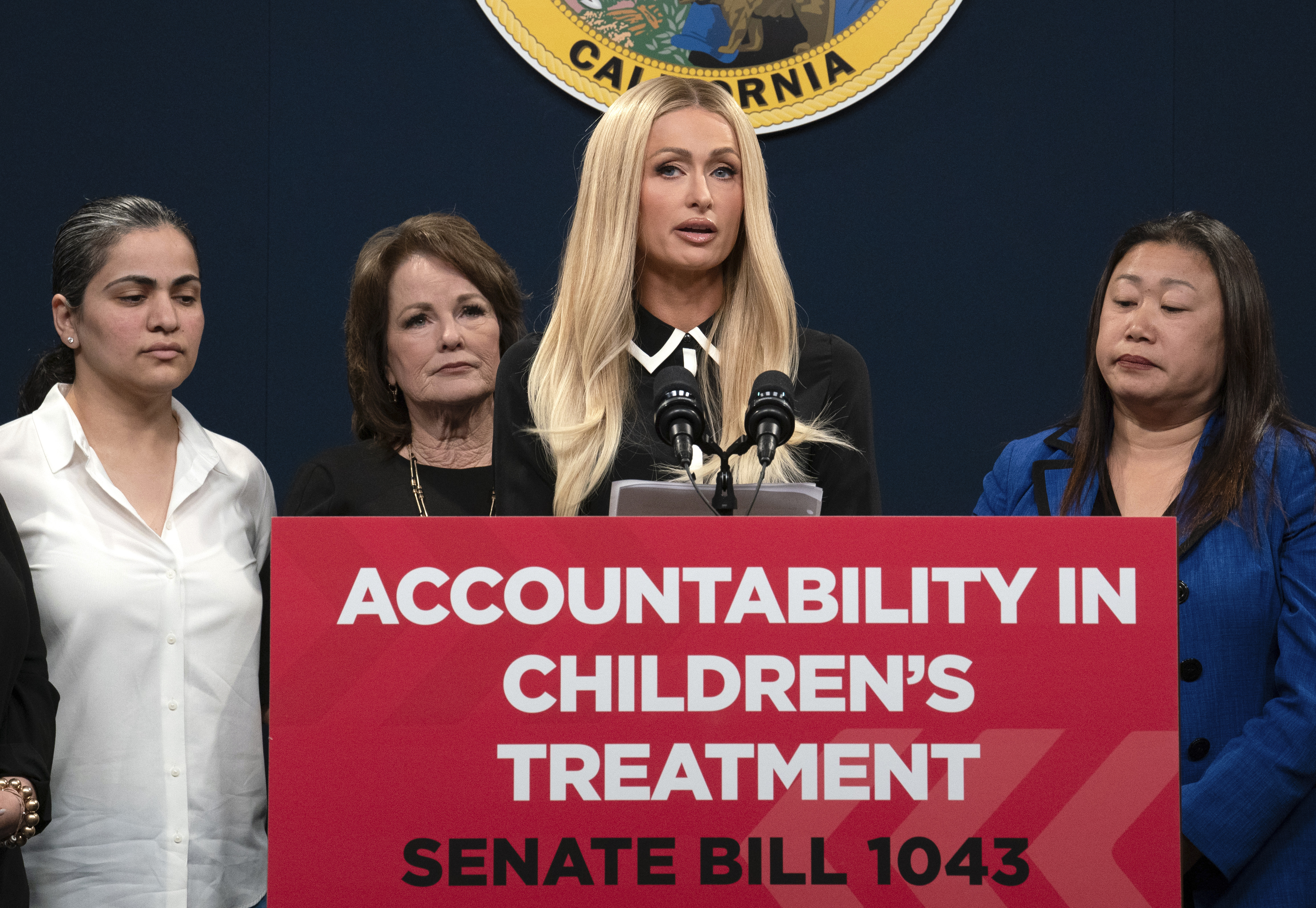| By Lance Williams and Agustin Armendariz |
| Center for Investigative Reporting |
In May 2012 and again in June, Speaker John A. Pérez wrote memos to Democrats in the California Assembly. He wanted millions in campaign cash to win a handful of key races.
At stake, Pérez wrote, was their party’s control of the Assembly – and, as it turned out, the perks and power enjoyed by the lawmakers themselves.
“It is critical that we band together to maximize our financial resources,” the burly Los Angeles legislative leader wrote in the memos, copies of which were obtained by the Center for Investigative Reporting.
California
The lawmakers gave Pérez what he wanted, state campaign finance records show.
Exploiting loopholes in a law enacted to stanch the flow of big money in state politics, the Assembly Democrats pumped $5.8 million into the campaigns Pérez designated, a CIR data analysis shows. The infusion of cash helped the Democrats win a supermajority in the Capitol: two-thirds control of the Legislature for the first time since 1883.
The system also paid off for the speaker’s biggest fundraisers in the Assembly.
According to the data, Pérez gave lawmakers who raised the most money the best assignments in the new Legislature – posts on the speaker’s leadership team and seats on the powerful “juice committees.”
Theseare seven of the Assembly’s 30 standing policy committees. They control bills affecting the financial bottom line for the Capitol’s wealthiest interest groups: from banks, insurance companies and public utilities to casinos, racetracks and liquor distributors. For lawmakers who serve on them, the committees are a source of political campaign “juice”: abundant donations.
Pérez spokesman John Vigna said the speaker makes legislative assignments based on merits, not money.
“There is absolutely no connection, zero connection, between Speaker Pérez’s leadership selections and any political considerations, including fundraising,” he said.
“Speaker Pérez chooses his leadership team based on their ability to serve the people of California” and nothing else, Vigna added.
CIR’s analysis of more than 38,000 contributions to Assembly Democrats in the 2011-12 campaign shows a link between donations to the speaker’stargeted races and a lawmaker’s prospects for important legislative assignments.
Among the findings:
- The mega-donors to Pérez’s targets – three lawmakers who gave more than $250,000 – obtainedpositions of power. Each was named to either a leadership post or chairmanship of a juice committee, along with a seat on at least one juice committee.
- Lawmakers who gave more than $150,000 were likely to get multiple important posts. All 18 got one juice committee seat, and 16 got a leadership post, chairmanship of a juice committee or a seat on a second juice committee.
- Lawmakers who gave less got less. Donors who contributed less than $150,000 stood a 13 percent chance of heading a juice committee or joining the leadership. No lawmaker who gave less than $40,000 was named chairman of a juice committee.
California’s Assembly speakers, Democrat and Republican alike, long have courted the state’s monied interests, seeking campaign funds to win or maintain power in the Legislature. Despite efforts to break this cycle, most speakers also have given political allies leadership posts, committee assignments and other perks.
The Pérez memos and the pattern of donations that followed them provide new insights into how those dynamics played out in the 2012 campaign.
Phillip Ung, policy advocate for the political reform group California Common Cause, said CIR’s findings are reason for concern.
“This system of campaign finance buying leadership on committees” has nothing to do with good government, he said.
“When voters see someone is chair of a committee, their expectation is that person is there because that person is a policy expert, not because they bought that chair,” Ung said.
Pérez, 43, is a former labor union official who was elected speaker in 2009. Even in an era of term limits – Pérez must leave the Assembly next year – he has emerged as one of California’s most powerful officials.
As the memos make clear, Pérez as speaker has made fundraising a priority. But raising money is complicated by Proposition 34, a campaign finance law passed by voters in 2000 to limit the influence of big money on state elections. Today, the law caps donations in legislative races at $3,900 per donor but allows unlimited donations to state political parties.
Pérez’s memos – one concerning the June primary, the other the general election – spell out his strategy for sidestepping the $3,900 donation cap and directing millions in contributions to key campaigns.
In the documents, Pérez sought $127,900 from each of the 52 Democrats in the Assembly at the time. The breakdown: $3,900 apiece in each of five targeted primary races and $3,900 more in each of six races targeted in the November campaign; $65,000 for the state party’s “candidate support fund,” split between the primary and general elections; and $20,000 for Gov. Jerry Brown’s tax hike measure.
Pérez told the lawmakers not to send the money directly to the campaigns. Instead, “for proper tracking,” they were told to deliver the money to an office the speakermaintains near the Capitol.
In the end, the Democrats gave more money than the speaker had requested. Republicans lost in all the races Pérez targeted, and Democrats wound up with 55 seats in the 80-seat Assembly – one seat more than needed for a two-thirds majority.
Reaping benefits
Meanwhile, as Pérez doled out legislative assignments between August and January, those who gave the most money reaped larger benefits, CIR’s analysis indicates.
The Assembly’s top donor, Toni Atkins of San Diego, gave $282,000 to the targeted races, records show. She was named Assembly majority floor leader – next to the speaker, the top leadership post. In addition to naming her majority leader, Pérez kept Atkins on the Health Committee, a juice committee on which she had served in the previous term.
Henry Perea of Fresno, a Pérez loyalist who gave a total of $277,000, was named chairman of the committee that oversees the insurance industry. He retained seats on two other juice committees as well.
Pérez’s No. 3 donor, Mike Gatto of Los Angeles, gave $258,000 to the targeted races. The speaker promoted him to be chairman of the most powerful juice committee, the Appropriations Committee, with jurisdiction over fiscal bills. Gatto also kept his seat on another juice committee.
Gatto declined to comment, referring a query to the speaker. Atkins and Perea didn’t respond to requests for comment.
CIR’s analysis shows that $150,000 was a cutoff of sorts. Most lawmakers who donated more than $150,000 to the speaker’s targeted races obtained important committee assignments or leadership posts.
Including the three mega-donors, 18 lawmakers broke the $150,000 threshold. Pérez named six of them to head juice committees. Five more got leadership posts, and another five got two or more juice committee assignments.
Roger Hernández of West Covina, who donated $185,000, wound up with seats on three juice committees. He was Pérez’s majority whip, but the speaker replaced him after he became embroiled in scandal involving an ex-girlfriend. Hernández didn’t respond to interview requests.
Pérez named two major donors to leadership posts even though they were incoming freshman assemblymen and thus had no Capitol experience.
Former Pasadena City Council member Chris Holden, who donated $199,000 to Pérez’s targets, was named majority whip, replacing Hernández, and put on two juice committees. In a statement, Holden said he believed he was named whip because of his long service in local government.
Environmental activist Anthony Rendon of South Gate, near Los Angeles, who gave $191,000, was named assistant majority floor leader and appointed to the Utilities and Commerce Committee. Pérez later removed Rendon from the leadership and made him chairman of the Committee on Water, Parks and Wildlife, which is not considered a juice committee. Rendon asked for that assignment, spokesman Bill Wong said, largely because of water issues in his district.
For lawmakers who steered less than $150,000 to the speaker, prospects were leaner, the analysis shows.
Eighteen lawmakers gave between $40,000 and $150,000. Of those, two were named to leadership positions, and one became chairman of a juice committee.
Prospects were poorest for lawmakers who gave less than $40,000. None of this group of 18 lawmakers was named to head a juice committee, and two were named to leadership posts.
The experience of Assemblywoman Mariko Yamada of Davis was noteworthy.
Yamada donated $9,600 to the targeted races, the least of any incumbent Assembly Democrat. When Pérez parceled out leadership posts and slots on the juice committees, Yamada was passed over.
Instead, the former social worker was reappointed as chairwoman of the Assembly’s low-profile Committee on Aging and Long-Term Care. She didn’t respond to requests for comment.
This story was edited by Amy Pyle and copy edited by Nikki Frick and Christine Lee.
The independent, nonprofit Center for Investigative Reporting is the country’s largest investigative reporting team. For more, visit www.cironline.org. The reporters can be reached at lwilliams@cironline.org and aarmendariz@cironline.org.



